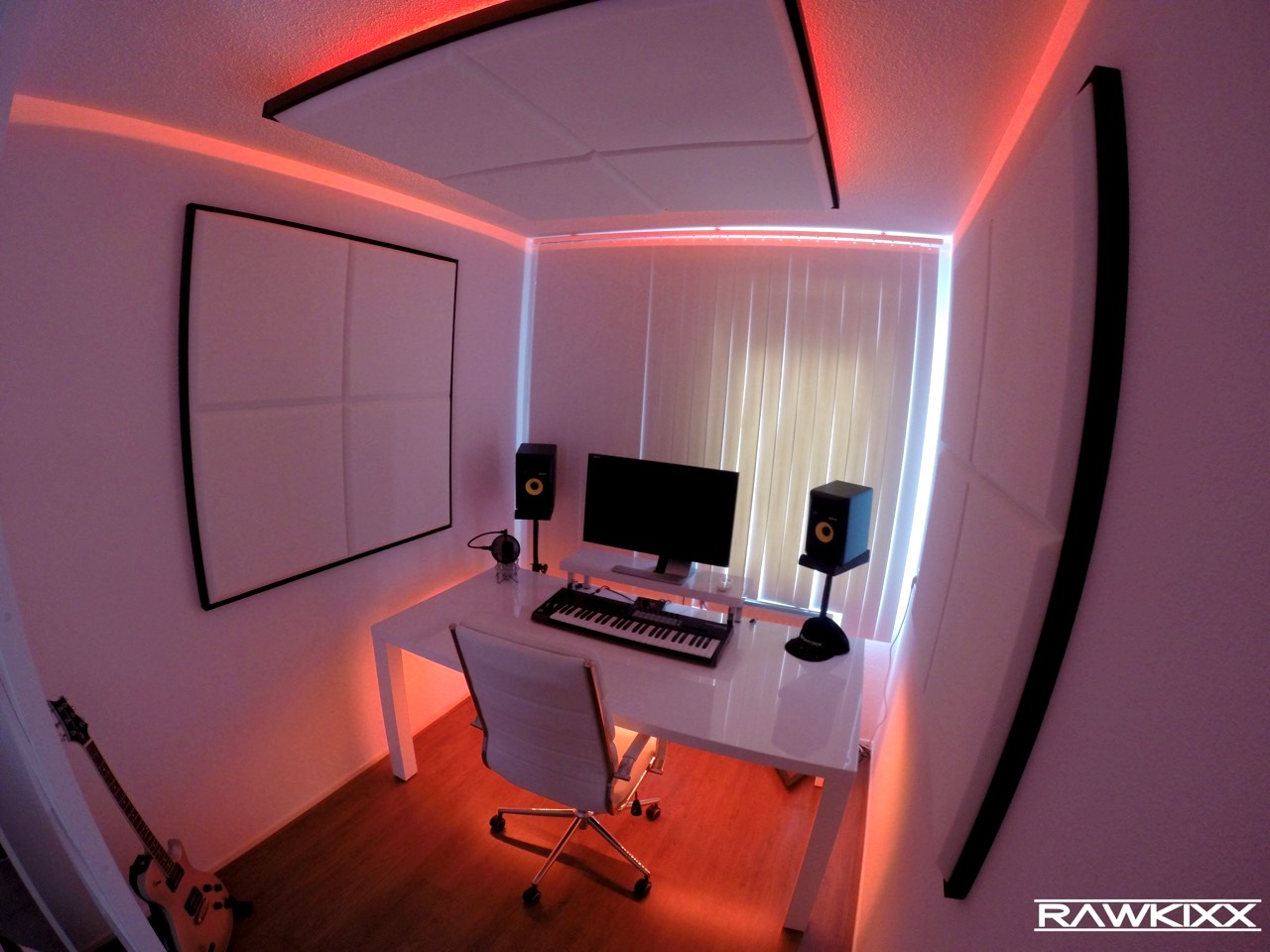What is basotect melamine foam?
History
Flamex is the brand name of various melamine foam products from Merford Acoustic Materials. In the past, Flamex (Basotect) was exclusively applied in yacht- and shipbuilding to cover machine rooms with. Flamex was aslo applied in appliance and machine building in order to absorb mechanical airborne noise. These variants Flamex FC and Flamex PU, are still being used in situation in which the absorption materials need to meet high requirements.
Nowadays, the range of Flamex products has become significantly bigger. In this article, you will read everything about the various types of Flamex that are used in order to improve room acoustics.
What is Flamex acoustic foam?
Flamex, also known as basotect, is a foam with an open cel structure made from melamine resin, a thermoset polymer. A three dimensional molecular network structure is created during the production process, which results in unique product properties compared to other foam products such as polyurethane foam. One of these properties, fire safety, has yielded the brand name Flamex. If Flamex burns, nitrogen gas is released, which has a flame-retardant effect.
Flamex has a hard molecular structure, making it very easy to cut the material to size. Since foam flexes less while cutting compared to, for example, polyurethane foam, it can be carved into all kind of paterns, textures and sizes. The production process delivers an open cell structure. This causes the texture of the material to consist of small air bubbles. Usually, these are smaller than 5 mm, but per square meter there can be a maximum of 10 wholes of 5 to 15 mm visible at the surface.
Flamex provides acoustic comfort
The Acousticshop has a nice range of various types of Flamex acoustic foam for improving room acoustics. Since it is so easy to process the product, the design can be tailored to any situation.
On our tips page "Suffering From Reverberation?" you can find general information about the problem of reverberation. The article 'Reverberation at Home', focuses specifically on improving the room acoustics at home. The following types of Flamex are suitable to optimize the acoustic climate of your room, like in the studio seen below:
- Flamex Edge
The most popular variant for improving room acoustics is Flamex Edge. A sturdy foam panel with a thickness of 50 mm that guarantees good absorption properties and ease of installation. Due to the faceted edges around the product the panels can be mounted against each other, without the shrinkage of 2% to becoming visible. Flamex Edge is available in white and grey. - Flamex Pyramid
In the Flamex range you can also find panels with a pyramide structure, for that 'studio look'. The pyramid dimensions are 50 x 50 x 30 mm on a foam base of 20 mm. Flamex Pyramid can also be applied at school, home or in offices to improve room acoustics. - Flamex Basic
As the name of this variant already indicates, the basic variant comes at a basic price. Flamex Basic isn't processed and has a flat structure, making it suitable to cover the ceiling with. Flamex Basic has a neutral look, because of which it is almost invisible (except for some small seams between the different plates). Basic products are often applied in sports canteens, schools, or club buildings, due to their attractive price and ease of application and installation.
Technical specifications and properties
- Absorption properties of Flamex Basic
25 mm thick: NRC = 0,60; αw = 0,58
50 mm thick: NRC = 0,80; αw = 0,75
- Fire classification Flamex
EN-13501-1 fire class C, smoke number S2, drip number D0. DIN 4102 class B1.
Temperature resistance: -43 °C up to +100 °C.
- Colours
Flamex is available in two colours:
White, approximately RAL9001.
Light grey, approximately RAL7047.
Flamex cannot be painted over.
Tolerance and margins
Because of processing reasons, a cutting tolerance applies to most Flamex variants, according to volgens DIN ISO 286-1 IT17. Tolerances from the dimensions are approximately 2%. Since Flamex has an elongation and shrinkage of 2% the product needs to acclimatize for about 12 hours in the room where the product will be applied.
Tips for processing and installation
Because of its elongation and shrinkage properties, Flamex cannot be attached by means of double-sided tape, but only by using Stauf Extreme Tack adhesive paste. This odourless adhesive paste can easily be applied and ensures a direct adhesion on practical every substrate. In order to cut Flamex to size you can make use of a ceramic knife.
Questions? 
Do you have any questions concerning this topic, or perhaps you would like to receive a product sample? Please feel free to contact us.

 Sound Insulation
Sound Insulation  Soundproofing
Soundproofing  Vibration Isolation
Vibration Isolation  Silent Ventilation
Silent Ventilation  Accessories
Accessories  Thermal & Acoustic Insulation
Thermal & Acoustic Insulation 